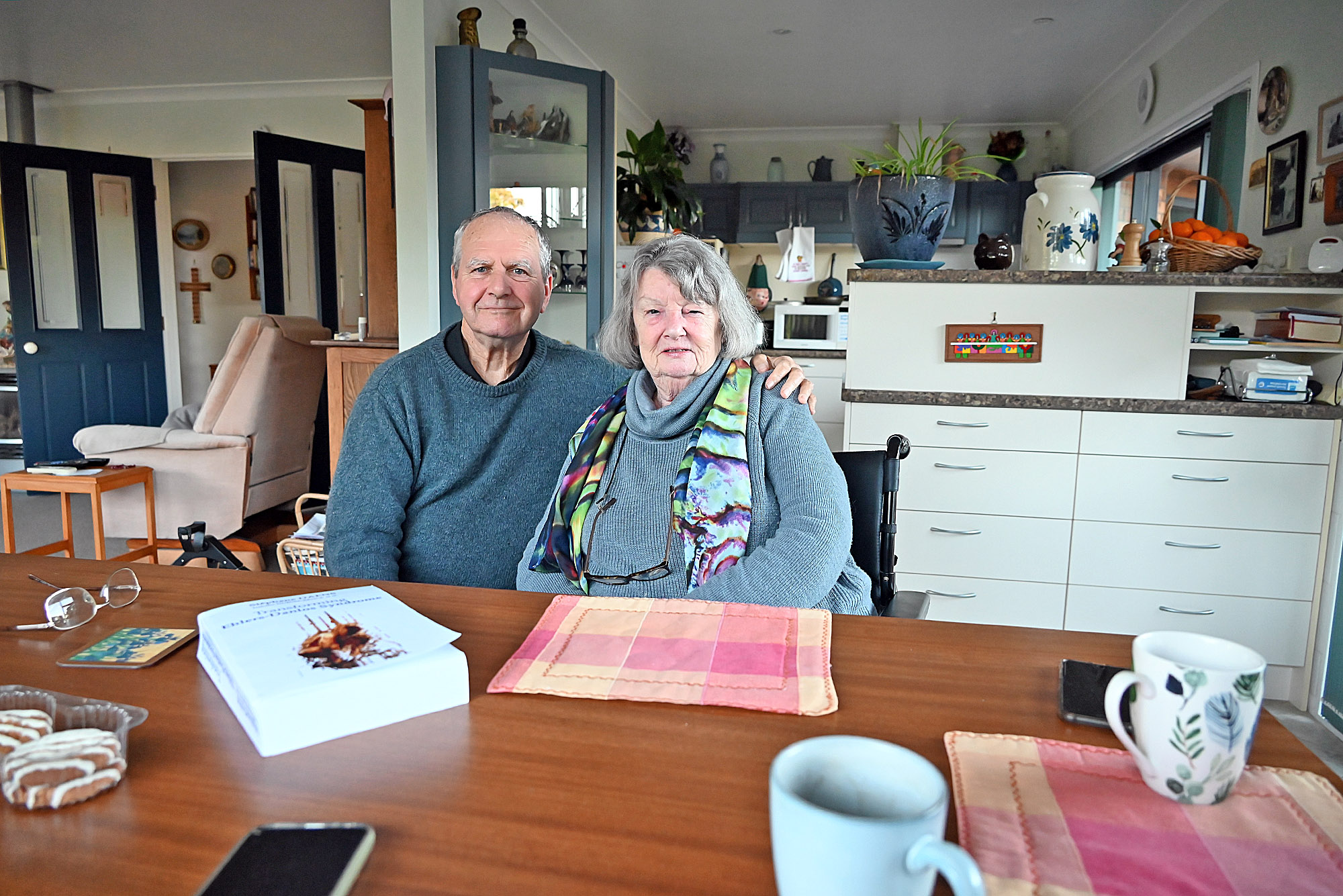‘Make all buildings accessible’

EXCUSES WEAR THIN: Mike and Sandra Crashley have had their fill of badly designed buildings.
Paul Charman
An Ōpōtiki couple say new laws are needed to make existing public buildings accessible to disabled people.
Sandra and Mike Crashley are fed up with being prevented from entering shops due to the lack of ramps and finding public buildings which lack disabled toilets.
They have launched a petition demanding provisions of the New Zealand Building Code which stipulate disabled access for new builds, be extended to all existing public buildings.
The petition, entitled “Disabled People Need to Access Public Buildings”, is available at: https://chng.it/qS78wj6h5h
Now retired, Mr and Mrs Crashley have had lengthy careers as a food technologist and home maker/author respectively. They have raised four children – two of their own and two adopted. They lived in Dunedin, then Gisborne before shifting to Ōpōtiki about 10 years ago.
Mrs Crashley said theirs had been a full life and though she had a rare condition called Ehlers-Danlos Syndrome, which limited her walking ability, it had not prevented them from rising to whatever challenges came their way.
Though she does not suffer from the condition herself, Mrs Crashley previously set up a national group for people with ME, also known as myalgic encephalomyelitis, or chronic fatigue syndrome. She has worked in a range of voluntary roles, including working with prison inmates and in Christian Fellowship for Disabled.
“Thanks to Mike, I’ve stayed active. But following complications caused by a dose of Covid I lost the ability to walk - though I can still stand, just,” Mrs Crashley said.
“I still drive, and we can both get out and about, but with the decreased mobility and the ageing process we’re finding it more of a challenge.
“Some of this comes down to things the Council could fix, such as eliminating the steep step-up from disabled carparks to footpaths.
“But mostly, a wheelchair-bound person’s access is still limited by older buildings not subject to the NZ Building Code because they were built before the new disabled access regulations came into force.
“Sure, these have to be brought up to code when they are altered or renovated, but it's not enough. If a building is for the public to use it, it must be accessible; saying they were built before the new regulations came into force is just a cop-out.
“Developers and landlords build, or own, public buildings because they intend to generate income – and some of this should be diverted into providing disability access. In the longer term this would be better for everyone, because disabled people have money to spend too.
“And while we’re on the subject of, “better for everyone”, remember that anyone really can land up in a wheelchair following an accident or an illness.
“God help the developer or landlord who skimps on disability today, if they find themselves in a wheelchair tomorrow.”